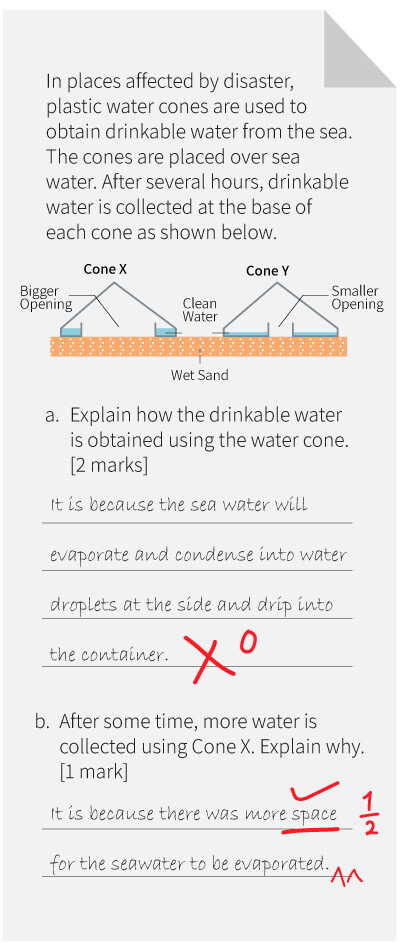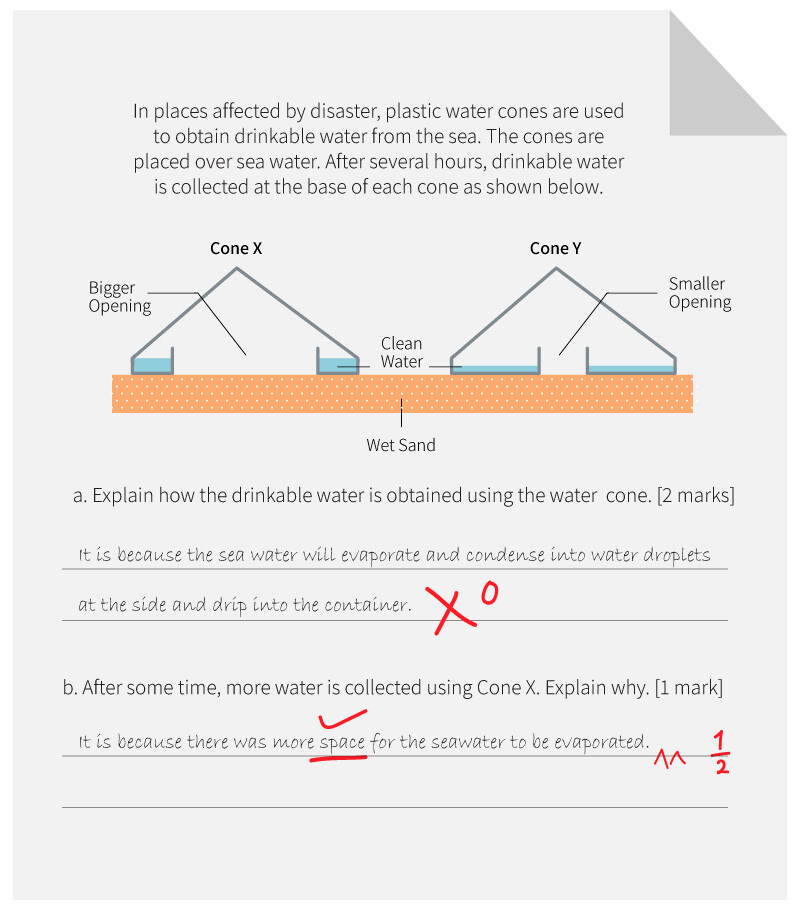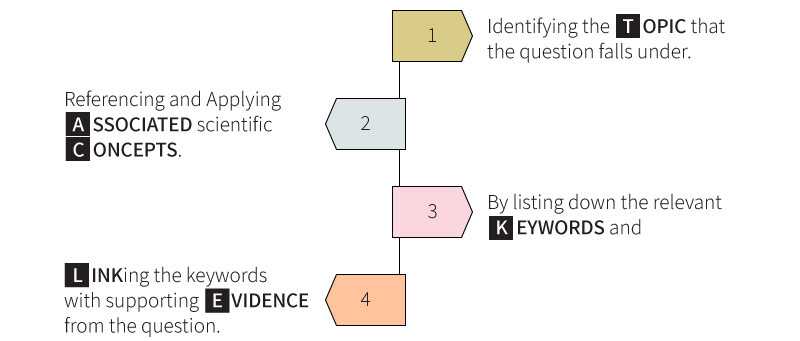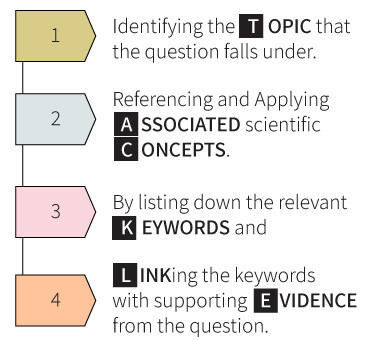
The changes in the PSLE Science exam format in 2017 involved Section B (Paper 2 Open-Ended Questions) of the Science examination carrying a greater weightage (44 marks).
Since then, it has become increasingly important for all Primary 3 to Primary 6 students to not only demonstrate their knowledge of scientific concepts, but also to apply them accurately and clearly to the given scenarios in the open-ended questions.
Mrs Serene Ng, Science Subject Head at The Learning Lab (Jem and Choa Chu Kang), explains why it is essential to master the right way to tackle Free-Response Questions (FRQs) in Section B.
Making Accurate Inferences of Scientific Concepts

Mastering the answering techniques and learning the scientific language to FRQs is very important. We have noticed a common trend where students answer questions in a very generic and simplified manner, with no specific scientific keywords, and disregard the context of the question.
A common mistake that most students make when trying to improve on Section B is to memorise facts and keywords. However, they forget that each question has a unique context — simply parroting model answers is not accurate and marks will n got be awarded.
Such rote memorisation and regurgitation of facts also inhibit students’ ability to process information and make accurate inferences of the scientific concepts tested, which is an important skill to develop.
Here's an example of how students typically analyse and answer FRQs:


One of the most common errors that most students tend to make (as seen in the example above) is the use of simplistic language and generic terms when it comes to formulating their explanations.
As such, although keywords like “evaporate” and “condense into water droplets” were used in the answers, marks will not be awarded as the answer lacks a systematic formulation of keywords and had no reference to the diagram and information in the question.
It is, therefore, important for students to understand that developing mastery in content and knowledge is not enough to do well in Science. Students need to go beyond memorisation of content by honing skills of interpreting data and experiments, with the added ability to reason and justify according to the demands of the questions.
For our suggested answers to these questions, click here to download our full guide to solving Science FRQs.
Our Method to Tackling FRQs
At The Learning Lab, we have an easy step-by-step method that allows our students to learn how to perform question analysis, using the “TACKLE” way.


Download Our Full Guide to Learn How We Employ the 'TACKLE' Strategy
The academic Science specialists at The Learning Lab have put a full guide together for your child to learn how to use our 'TACKLE' method in answering Science FRQs.
This revision guide features examples of difficult FRQs and how we employ the 'TACKLE' strategy to answer them accurately and precisely.
Download your complimentary Guide to Science FRQs with the 'TACKLE' Strategy here. This printable guide is loaded with invaluable tips and tricks to equip your child for any complicated FRQ.
Get Ahead, Stay Ahead
The new year will bring new challenges - but things do not have to get challenging.
At The Learning Lab, our Science programmes aim to help your child answer questions independently by guiding him or her progressively in learning the right skills and answering techniques.
Your child will also be given opportunities to participate in Science projects, experiments and games that bring concepts to life and encourage a hands-on approach to learning Science.
Find out more our Science programmes here.
The Learning Lab is now at locations. Find a location that suits your needs.
If you have any questions about our range of programmes or class schedules, you may contact us at 6733 8711 or drop us an email at enquiry@thelearninglab.com.sg.

